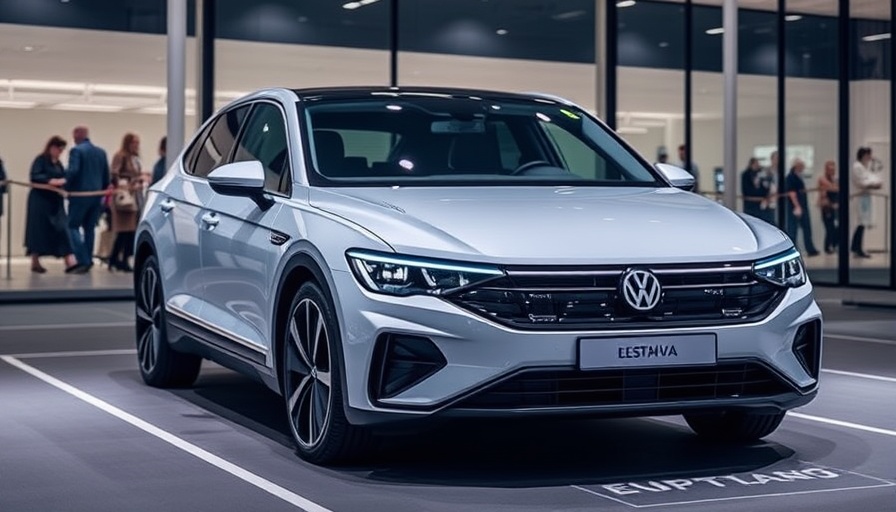
The Surge in Electric Vehicle Deliveries: A VW Group Overview
The Volkswagen Group has marked an impressive milestone by delivering 252,100 electric vehicles (EVs) worldwide in the third quarter of 2025, reflecting a robust growth of 33.1%. This surge brings the total deliveries to 717,500 EVs in the first nine months of 2025, representing a remarkable rise of 41.7% compared to the same time last year. Despite a slowdown in growth momentum compared to earlier quarters, VW Group's continued investments in electric mobility have begun to show promising results, particularly in Europe and the United States.
Understanding the Changing Landscape of EV Sales Across Regions
The trajectory of EV sales within the VW Group highlights varying performances in different markets. In the third quarter, the United States experienced a staggering growth of 213.5%, climbing from 11,900 to 37,400 EVs sold. This jump can be attributed to a growing acceptance of electric vehicles amid government initiatives promoting green technology and sustainable living.
Conversely, the market in China has faced significant challenges, with sales plummeting from 57,500 to 25,800 units, a decline of 55.2%. This shift raises questions about consumer trends and competition in the Chinese EV market, especially given the surge from local manufacturers. Still, VW Group continues to push forward, introducing models like the AUDI E5 Sportback in collaboration with local partners to regain ground.
Impacts of VW Group’s Electric Car Offensive
As the Group strives to reclaim its position in China, the introduction of new models across its subsidiaries could inspire a renewed interest among consumers. Notably, the Škoda Elroq has surprisingly outpaced its larger sibling, the Škoda Enyaq, demonstrating that smaller, efficient models can carve a niche in the competitive landscape. Brands like Audi, known for their premium market presence, continue to innovate and adapt to this evolving marketplace.
Environmental Considerations and Future Trends in Electric Mobility
For homeowners and businesses interested in utilizing solar and green energy, the VW Group's progress in electric vehicle deliveries aligns with broader trends toward sustainable energy solutions. The integration of EVs with solar-powered charging stations offers a dual opportunity – reducing dependency on fossil fuels while promoting sustainable living.
As the popularity of EVs increases, so does the potential for solar energy solutions. Homeowners can consider installing solar panels not merely for powering their homes but also for charging their electric vehicles efficiently, thereby maximizing utility and minimizing overall energy costs.
The Road Ahead: Potential Challenges and Opportunities
Despite the favorable sales growth in various regions, the VW Group must navigate significant challenges, including supply chain issues, battery production sustainability, and intensifying competition from both established automakers and new entrants. The Group aims to leverage its ongoing product offensive and performance programs to remain competitive. There is an urgent need for effective strategies not only for sales but also for enhancing the infrastructure, such as expanding EV charging networks.
Conclusion: Why This Matters for Consumers and Businesses
Understanding the dynamics of the EV market, including VW Group's performance, is crucial for homeowners and businesses looking to transition to green energy solutions. As electric vehicles gain traction, aligning energy consumption with renewable sources becomes not only a choice but an advantageous move for those wishing to lead in sustainability.
Stay ahead in the green energy revolution. Consider exploring how integrating electric vehicles and solar energy solutions can benefit you today. Visit local EV dealerships or renewable energy consults to learn more about your options.
 Add Row
Add Row  Add
Add 



Write A Comment